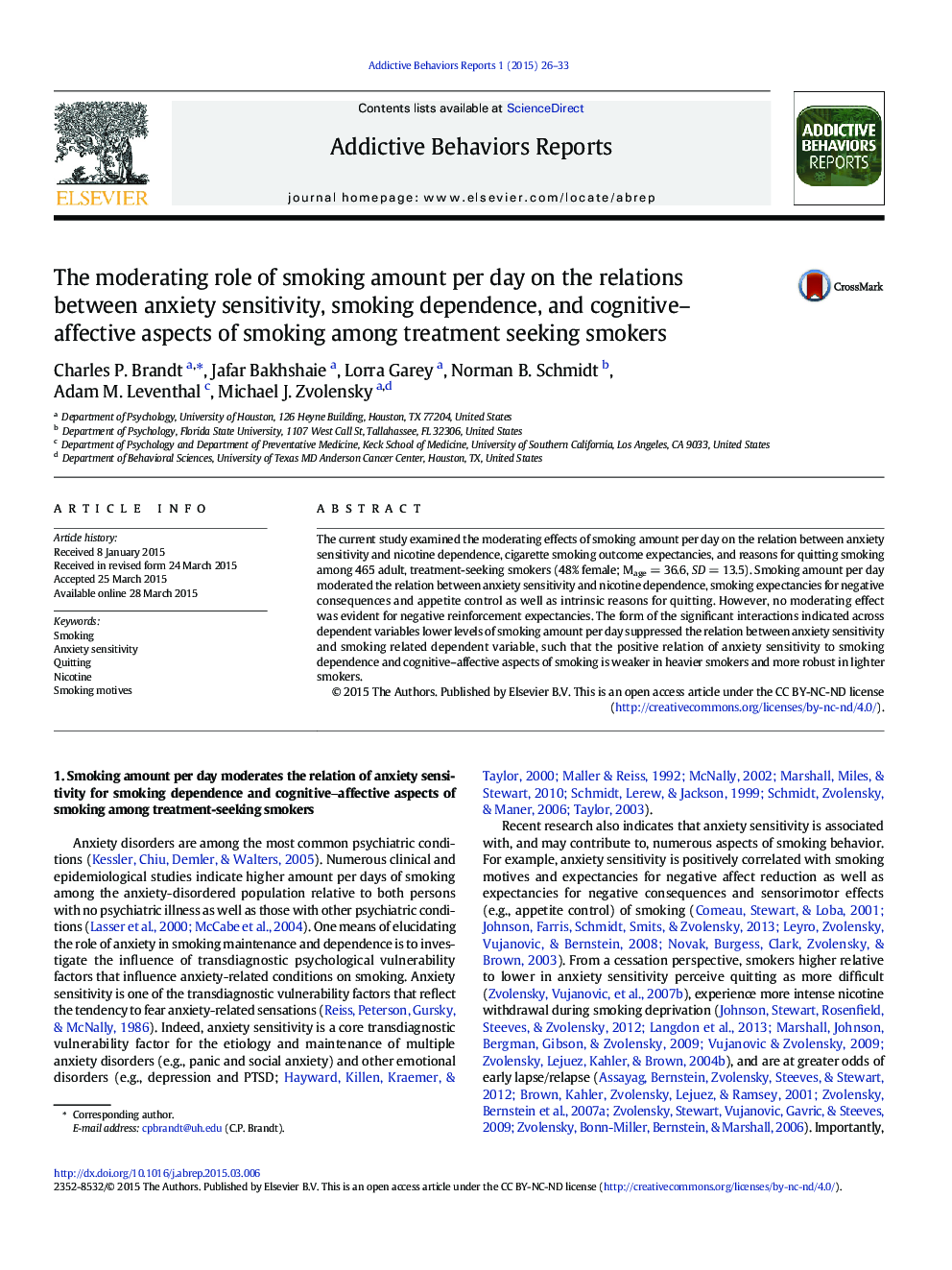| Article ID | Journal | Published Year | Pages | File Type |
|---|---|---|---|---|
| 900756 | Addictive Behaviors Reports | 2015 | 8 Pages |
•We examined the moderating effect of anxiety sensitivity on relations between smoking rate and clinical aspects of smoking•Low anxiety sensitivity predicts lower tobacco dependence and lower rates of smoking expectancies and reasons for quitting•These relations are not explained by related covariates including, alcohol use, medical problems, anxiety disorders, and more
The current study examined the moderating effects of smoking amount per day on the relation between anxiety sensitivity and nicotine dependence, cigarette smoking outcome expectancies, and reasons for quitting smoking among 465 adult, treatment-seeking smokers (48% female; Mage = 36.6, SD = 13.5). Smoking amount per day moderated the relation between anxiety sensitivity and nicotine dependence, smoking expectancies for negative consequences and appetite control as well as intrinsic reasons for quitting. However, no moderating effect was evident for negative reinforcement expectancies. The form of the significant interactions indicated across dependent variables lower levels of smoking amount per day suppressed the relation between anxiety sensitivity and smoking related dependent variable, such that the positive relation of anxiety sensitivity to smoking dependence and cognitive–affective aspects of smoking is weaker in heavier smokers and more robust in lighter smokers.
